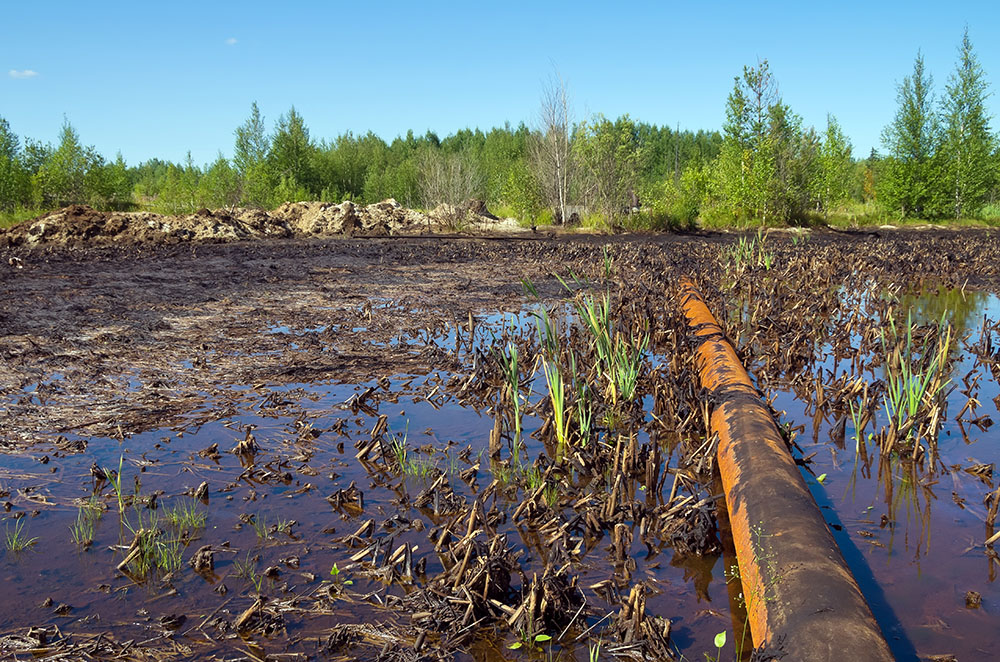What Are The Long-Term Effects Of Oil Spills?

CONTENTS
- Immediate ecological impact of oil spills
- Long-term environmental consequences
- Socioeconomic aftermath for affected regions
- Remediation efforts and natural recovery
- Impact on human health
- Changes in biodiversity and ecosystem dynamics
- Policy responses and regulatory changes
- A future outlook for oil
- Frequently asked questions
- Get in touch
Oil spills are often associated with marine incidents like oil rigs and damaged boats, but the reality is that oil spills can occur anywhere - even in your garden. Spills can come from cars, domestic oil tanks, and generators, and the long-term environmental effects make rapid action integral.
At ICE Cleaning, we offer oil spill cleaning services for various types, including a gasoline spill, a diesel spill, and a hydraulic oil spill. Our technicians utilise the latest technology to extract oil from an area, decontaminate the area, and prevent long-term environmental damage.
Read on to learn more about oil spills and their long-term effect on the environment.
Immediate ecological impact of oil spills
Within moments of an oil spill, toxic substances cover local habitats, suffocating wildlife and blocking sunlight from reaching underwater areas. Dissolved toxins also invade water columns, affecting species that live in water or underground in moist habitats.
The aftermath for ecosystems can be devastating as noxious oil fumes travel through the air, clinging to grains of sand, dirt, and grass — destroying nests and poisoning food supplies. Oil spill clean-ups can help mitigate damage, but long-term exposure will have a lasting effect.
Oil can infiltrate delicate mangroves and marshes - crucial nurseries for countless marine organisms. The result is a breakdown in these vital breeding grounds with far-reaching consequences long after the initial spill.
Long-term environmental consequences
The scars oil spills leave on the environment do not fade easily. Over time, they can transform bustling ecosystems into silent wastelands. A thriving garden suffering from the effects of an oil spill from a private tank may not recover, affecting plant life and posing a hazard to the property owner.
Ocean spills can be more devastating as the water might interact with the oil, damaging life beneath the surface. Oil attacks local species populations like seabirds and fish, killing them and lowering their numbers. This can affect the economy with less local fishing and cause sickness in locals.
Socioeconomic aftermath for affected regions
When oil spills hit, fishing and tourism are usually affected. These two industries will see profits fall when these environmental disasters strike. Fishermen find their nets empty, while tourists will avoid these areas.
The cost to clean oil spills can be expensive depending on the size, eating into public or company funds - which can build up to £30,000. Communities may also see reduced employment opportunities and higher sickness rates caused by oil exposure.
Remediation efforts and natural recovery
Natural recovery processes are fascinating, involving tiny organisms breaking down oil over time. But this is not fast enough when livelihoods and local habitats may suffer irreversible damage.
Oil spill cleaning techniques range from deploying booms and dispersants to more creative methods, like bioremediation that utilises bacteria, algae, and fungi to break down contaminants.
However, even with our technological approaches, full recovery can be hard to achieve. The easiest way to mitigate damage is by rapidly cleaning the spill and preventing its spread.
Oil spill cleaning companies can take over for this, using the latest technology to effectively isolate a spill and extract all contaminants from the area. By using decontamination methods, they can prevent further environmental damage and help an area heal naturally.
Impact on human health
Oil spills can also affect human health, as direct contact with oil can lead to rashes, burns, and chronic conditions. Beyond the physical risks, there are also mental health effects to consider.
For example, in the aftermath of the Deepwater Horizon oil spill, a study showed that there was an increase in depression, anxiety, and post-traumatic stress disorder in individuals whose lives were affected.
Beyond this is compromised food safety as seafood and plant life contaminated by oil will be too dangerous to eat and must be discarded. This reduces availability in local stores, lowering the amount of fruit, vegetables, and seafood for sale.
Changes in biodiversity and ecosystem dynamics
Without rapid oil remediation, the ripple effects on biodiversity can devastate and change a local ecosystem. Species crucial to their habitat start to vanish, tipping the scales of predator-prey dynamics.
On land, oil spills can harm local wildlife and insects, disrupting and changing the food chain, which can take a long time to recover.
Oil also prevents photosynthesis, causing a decrease in plant life and further damaging the ecosystem. Ground and soil oil spills can also kill vital microorganisms necessary to maintain environmental balance.
In oceans, oil spills kill and injure seabirds, sea turtles, fish, and shellfish. Oil can permanently damage the fur and feathers of self-insulating animals, exposing them to harsh sea conditions.
The food chain is affected by oil as fish and shellfish will naturally ingest oil, therefore harming predators like swordfish, sharks, and tuna.
Both land and sea life will feel the effects of oil as it can damage or change reproduction cycles and growth rates. These issues will have long-term effects without rapid remediation, and although nature can eventually tackle these effects, damage control is necessary.
Policy responses and regulatory changes
After large oil spills, governments often rewrite current guidelines and laws. They learn from past spills and enforce new policies that might emerge quickly.
For instance, after the Deepwater Horizon disaster in 2010, which released about 4.9 million barrels of oil into the Gulf of Mexico, safety protocols expanded and changed to ensure there would never be a repeat.
In response to such environmental disasters, industry standards tighten. The European Union made immediate changes post-Deepwater with its Offshore Safety Directive, advocating for safer seas.
Sometimes changes spark global conversations that lead to international agreements because one country's spill could be another's problem down the line.
A future outlook for oil
At the end of the 2023 United Nations Climate Change Conference, a landmark deal among 200 countries sees an agreement to transition from coal, gas, and oil. This means that the fossil fuel era that dominates the energy sector will be coming to a close.
This comes after a report that reveals from February 2022 to 2023, gas and oil companies expanded their production, exceeding emission levels by 178%. This expansion puts many ecosystems at risk of oil spills, and this phase-out will be integral.
Although some oil-producing countries were combative against this, the overall agreement is still a hopeful move for the planet's future. In the meantime, technology continues to evolve, finding new ways to combat oil spills and prevent further destruction on the planet.
Frequently asked questions
What are the 5 effects of oil spills?
Oil spills can negatively impact wildlife, habitats, water quality, fisheries and local economies.
What is the environmental impact of oil spills?
Oil disrupts ecosystems, smothering marine life while polluting shores and disrupting natural balance for years.
What are the long-term effects of an oil spill?
Persistent contamination from spills leads to altered habitats, sickly wildlife populations and lasting ecological scars.
What are the 5 negative effects of the oil industry on the environment?
The industry's dark side shows habitat loss, air pollution spikes, water contamination risks and increased carbon emissions.
Get in touch
ICE Cleaning is a professional cleaning company specialising in oil spillage cleaning services. Our technicians have experience in this field and can extract oil from freshwater, soil, the ocean, the pavement, and underground.
To learn more about our oil decontamination services, you can contact our team at 0208 066 0360 and enquiries@icecleaning.co.uk. We understand the urgency of oil spillages, which is why we offer 24-hour support nationwide and same-day cleaning in emergencies. Get in touch with our team today in the event of an emergency spill.

Speak with me today,
I’m here to help
By asking you a few questions either via phone or email I can immediately provide a realistic estimation of the cost.
You’re in good company. We’ve cleaned for the following commercial clients… View all

Why choose us?
- Cater to a wide variety of cleaning situations
- Nationwide coverage, available 24/7
- Cater to commercial and domestic clients
- Free survey provided prior to quotation
- Emergency response team
- Offer a bespoke service designed to suit all your needs
- All technicians hold professional health and safety qualifications, including BICSc, IOSH, Dewpoint Professional & Safe Contractor
We’re fully accredited
We place best practise, professional expertise and health and safety at the core of our business. We’re fully compliant with all legal obligations. You can view a list of our accreditations below, or visit our Health & Safety page for more information.











-RGB-small.1707319151.jpg)




















